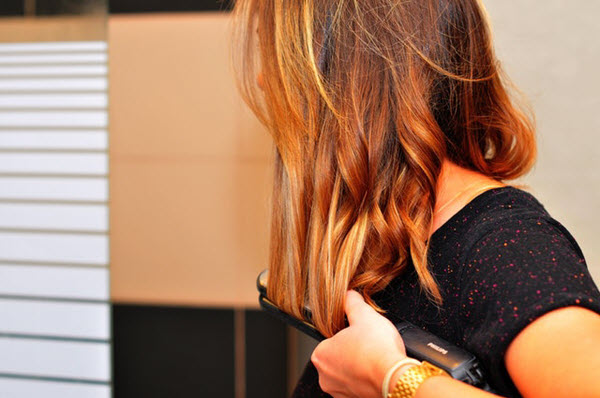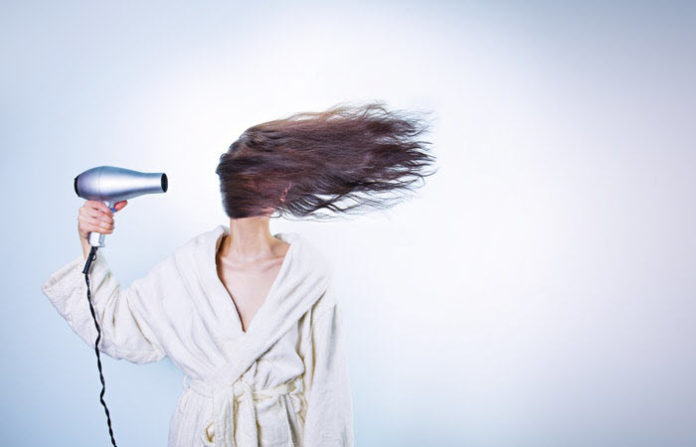With so many things to do, styling one’s hair is probably the last thing on any nurse’s mind. We’d rather sleep or spend time with the family than spend tons of hours in the salon. While it’s not on our priority list, this doesn’t mean that there’s nothing we can do to curb our hair issues.
To help address your weak hair, here are some tips and tricks you can use.
1Always be kind to your hair
To avoid everyday-bad-hair-days, use less shampoo and make it a habit to condition your ends. Skip warm water and use cold water when rinsing your hair. These two tricks can help tame frizz and make your hair more manageable.
You can shampoo your hair every other day if it’s not that oily. Washing your hair too frequently can strip your hair and scalp of their natural oils.
For days you can’t wash your hair, skip dry shampoo and use cornstarch instead. It has the same ability to absorb shine and grease without making your hair look white and powdery. If you have really dark hair, however, you can combine cornstarch with cocoa powder.
2Deep condition your hair
Deep conditioning is one good way to repair your hair’s damage. You can do it once or twice a week right from the comfort of your home. For a simple DIY hair mask recipe, you’ll need:
- 1 egg (For thick hair: use 2 eggs)
- ½ lemon
- 2 tablespoons of olive oil
- 1 cup of milk
Separate the egg and use the white part if you have oily hair. For dry hair, use the egg yolk. Transfer it to a clean bowl, beat it and add the milk and olive oil. Continue mixing until you get a gooey mixture. Add the lemon last.
Once you’ve mixed everything, apply the mixture on your scalp. Massage it to allow the ingredients to really do their work. Since the mixture can get really drippy, make sure to apply the egg mask near your sink. Cover your hair with a plastic cap and let the mask sit for at least 15 minutes before rinsing.
3Choose a hairstyle that will work with your hair type
If your hair is naturally straight, consider cutting it shorter. If you grow your hair too long, it would wear your hair down which can take away its volume. For finer hair, you can add layers to make your hair a lot more stylish. In case you have curly hair, you can grow it long. The weight of your hair will help minimize frizz.
4Skip the harsh elastics
Wearing your hair up is a must for most institutions. In doing your ponytail, avoid using elastic bands with metal parts. They can damage and pull out your hair. A safer choice would be soft bands with continuous pieces.
5Take it easy in using heat

As much as possible, allow your hair to air dry. Frequently using heat to dry and style your hair can make it brittle and weak. If you really need to use your blow dryer or hair straightener, don’t forget to use a heat protectant. This can reduce damage and breakage.
6Make it a habit to brush your hair

Apart from removing tangles, brushing your hair daily can stimulate better blood flow to your scalp. The better the blood flow, the more nutrients can reach your hair. Brushing can also distribute the oil which can stop your scalp from getting oily. It helps remove accumulated dirt and dead skin cells, too.
Keep in mind, however, that brushing is best done in the morning and on dry hair. If your hair is wet, use a wide-tooth comb to avoid stressing your hair strands.
7Use the right products for your hair type
For weak hair, investing in products that have strengthening properties is a must. You should look out for ingredients like keratin and amino acids as these can penetrate the hair shaft and boost your hair’s natural resiliency. Stay away from shampoos and conditioners that contain ammonium lauryl sulfate and sodium lauryl sulfate as they can dry out your hair.
8Get regular trims

The ends of your hair tend to get damaged easily. To make sure they don’t creep upward, get regular trims. Even if you are growing out your hair, trimming can make your hair look neat, healthy and shiny.
9Don’t tie your hair too tightly
Tightly tying your hair can sound convenient, especially when you are running a busy shift or when you are cleaning after your patient. Unfortunately, keeping your hair that way can lead to hair loss as your scalp gets pulled.
Instead of tight ponytails, wear your hair in loose buns or braids. If you really prefer ponytails, alternate the ways you tie it, like wearing it high today and then low tomorrow.
See Also: Say Goodbye to Boring Ponytails: The 8 Best Hairstyles for Nursing Clinicals
10Start a healthy diet
Contrary to what most people believe in, the health of one’s hair isn’t solely dependent on the products one uses. If you want to strengthen your hair, you have to take care of it from the inside. Eat more iron-rich foods as they can help strengthen your hair strands, stimulate hair growth and improve its texture. Add more foods with biotin and silica as they can support weak hair, too.
And while you’re changing your diet, consider working on your stress management as well. Stress can cause hair loss as it triggers vasoconstriction which deprives your hair of the nutrients and oxygen it needs to function. Stress can also negatively affect your sleep, an essential component for the repair of your skin cells and hair.
You can do meditation, yoga or find a new hobby you can do after your shift or during your day off. Another good idea is to be more physically active. You can do at-home exercises or enroll in a gym class.



















